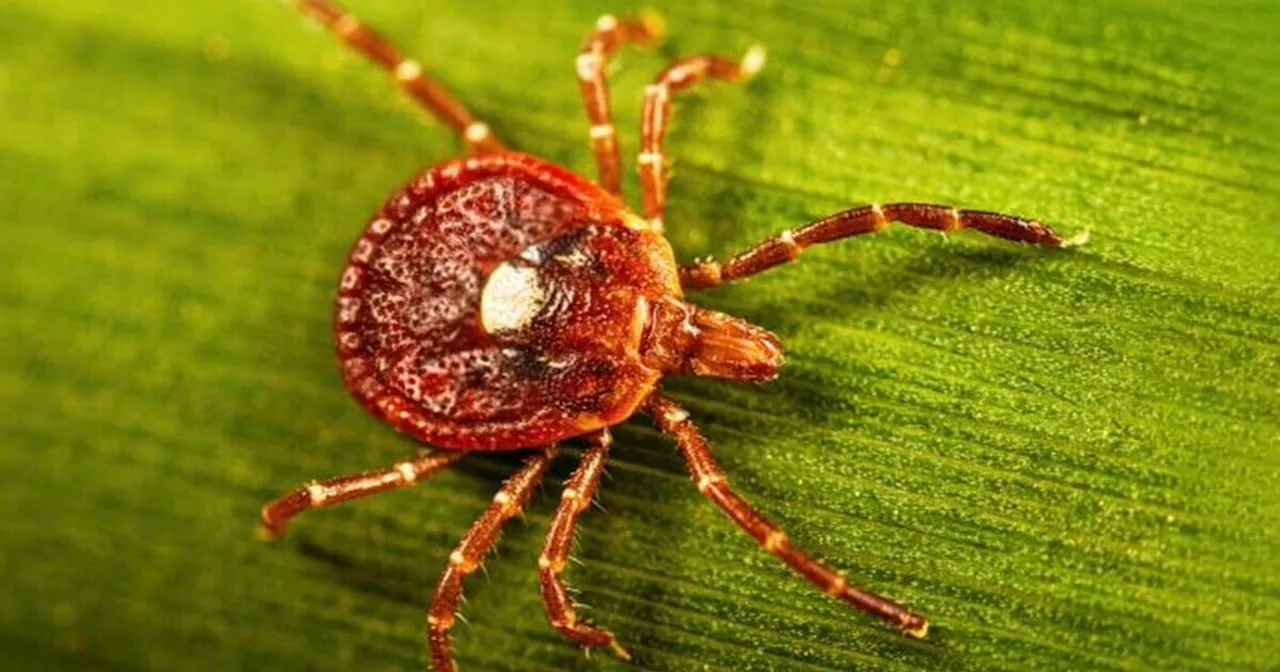Health
First Documented Death from Alpha-Gal Syndrome Raises Alarm

Researchers have reported the first documented death attributed to alpha-gal syndrome, a severe allergic reaction to red meat linked to bites from lone star ticks. The case involves a 47-year-old pilot from New Jersey who tragically passed away after consuming a hamburger at a barbecue in 2024. This incident highlights the serious nature of the allergy and raises urgent concerns regarding tick-borne illnesses.
The findings, published by researchers at the University of Virginia School of Medicine, detail how the pilot fell ill approximately four hours after eating. His son discovered him unconscious in a bathroom, surrounded by vomit. Despite immediate medical intervention, he was pronounced dead at a hospital. An autopsy cited a sudden unexplained event as the cause of death, emphasizing the unpredictable and severe nature of this condition.
The pilot’s wife revealed that he had a history of adverse reactions after eating red meat, experiencing symptoms such as abdominal discomfort, nausea, diarrhea, and vomiting. Initially, these episodes were mistaken for food poisoning, which complicates the recognition and diagnosis of alpha-gal syndrome. The pilot had previously experienced similar reactions after consuming steak, but neither he nor his wife sought medical attention at the time.
A blood sample collected posthumously indicated an allergic reaction to alpha-gal, a sugar molecule commonly found in mammals and transmitted through tick bites. Investigations confirmed that the pilot had sustained multiple bites from lone star ticks, which are the primary vectors for alpha-gal syndrome. These bites had initially been mistaken for chigger bites, but they are believed to have triggered the allergy, leading to a life-threatening immune response upon the consumption of red meat.
The Centers for Disease Control and Prevention (CDC) has reported a significant increase in cases of alpha-gal syndrome, estimating that as many as 450,000 individuals in the United States may be affected, far surpassing the number of confirmed cases. The condition often goes undiagnosed due to its delayed onset and the lack of awareness among both patients and healthcare providers.
Alpha-gal syndrome can present with various gastrointestinal symptoms, including diarrhea, nausea, and abdominal pain. The American Gastroenterological Association recommends testing for the syndrome in patients experiencing unexplained gastrointestinal issues, underscoring the need for heightened awareness and proactive diagnostic measures.
The rising prevalence of lone star ticks, attributed to climate change and habitat shifts, poses a growing public health concern. Experts warn that this migration could expose larger populations to the risk of infection. Preventative measures, such as using insect repellent and wearing protective clothing, are recommended to reduce the likelihood of tick bites.
In the absence of a vaccine, the primary management strategy for individuals diagnosed with alpha-gal syndrome involves dietary modifications, specifically the elimination of red meat from their diets. The pilot’s tragic death serves as a stark reminder of the potential severity of this allergy and the critical need for early diagnosis and intervention.
The report calls for increased public awareness regarding alpha-gal syndrome, emphasizing the importance of educating healthcare providers about its symptoms and management strategies. As cases continue to rise, understanding the disease and its triggers is essential for effective prevention and treatment.
-

 Science2 weeks ago
Science2 weeks agoUniversity of Hawaiʻi Joins $25.6M AI Project to Monitor Disasters
-

 Business2 weeks ago
Business2 weeks agoForeign Inflows into Japan Stocks Surge to ¥1.34 Trillion
-

 Top Stories3 weeks ago
Top Stories3 weeks agoMarc Buoniconti’s Legacy: 40 Years Later, Lives Transformed
-

 Top Stories3 weeks ago
Top Stories3 weeks agoBOYNEXTDOOR’s Jaehyun Faces Backlash Amid BTS-TWICE Controversy
-

 Health3 weeks ago
Health3 weeks agoInnovative Surgery Restores Confidence for Breast Cancer Patients
-

 Sports1 month ago
Sports1 month agoSteve Kerr Supports Jonathan Kuminga After Ejection in Preseason Game
-

 Science1 month ago
Science1 month agoChicago’s Viral ‘Rat Hole’ Likely Created by Squirrel, Study Reveals
-

 Lifestyle1 month ago
Lifestyle1 month agoKelsea Ballerini Launches ‘Burn the Baggage’ Candle with Ranger Station
-

 Entertainment1 month ago
Entertainment1 month agoZoe Saldana Advocates for James Cameron’s Avatar Documentary
-

 Top Stories3 weeks ago
Top Stories3 weeks agoCarson Wentz Out for Season After Shoulder Surgery: Urgent Update
-

 Politics1 month ago
Politics1 month agoDallin H. Oaks Assumes Leadership of Latter-day Saints Church
-

 Lifestyle1 month ago
Lifestyle1 month agoDua Lipa Celebrates Passing GCSE Spanish During World Tour









